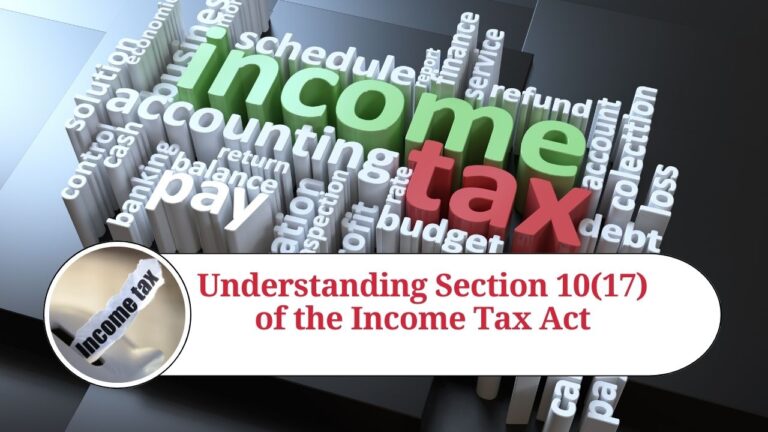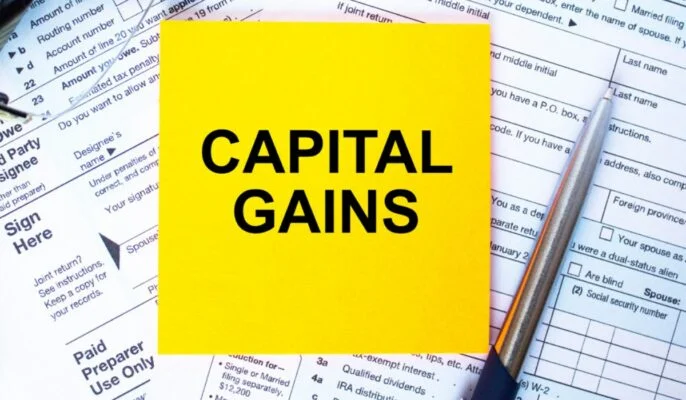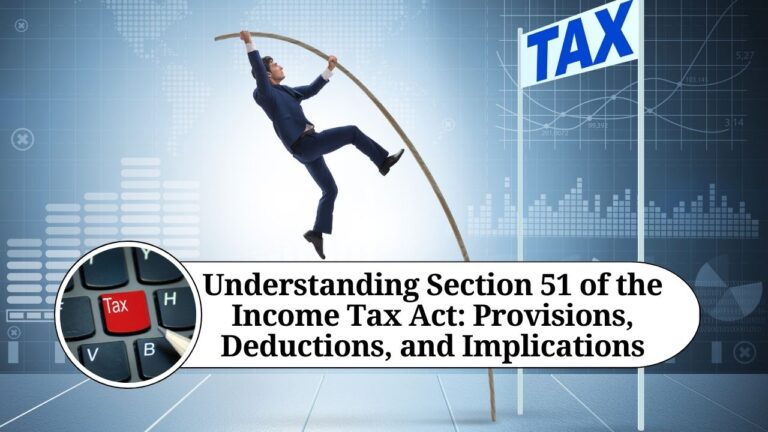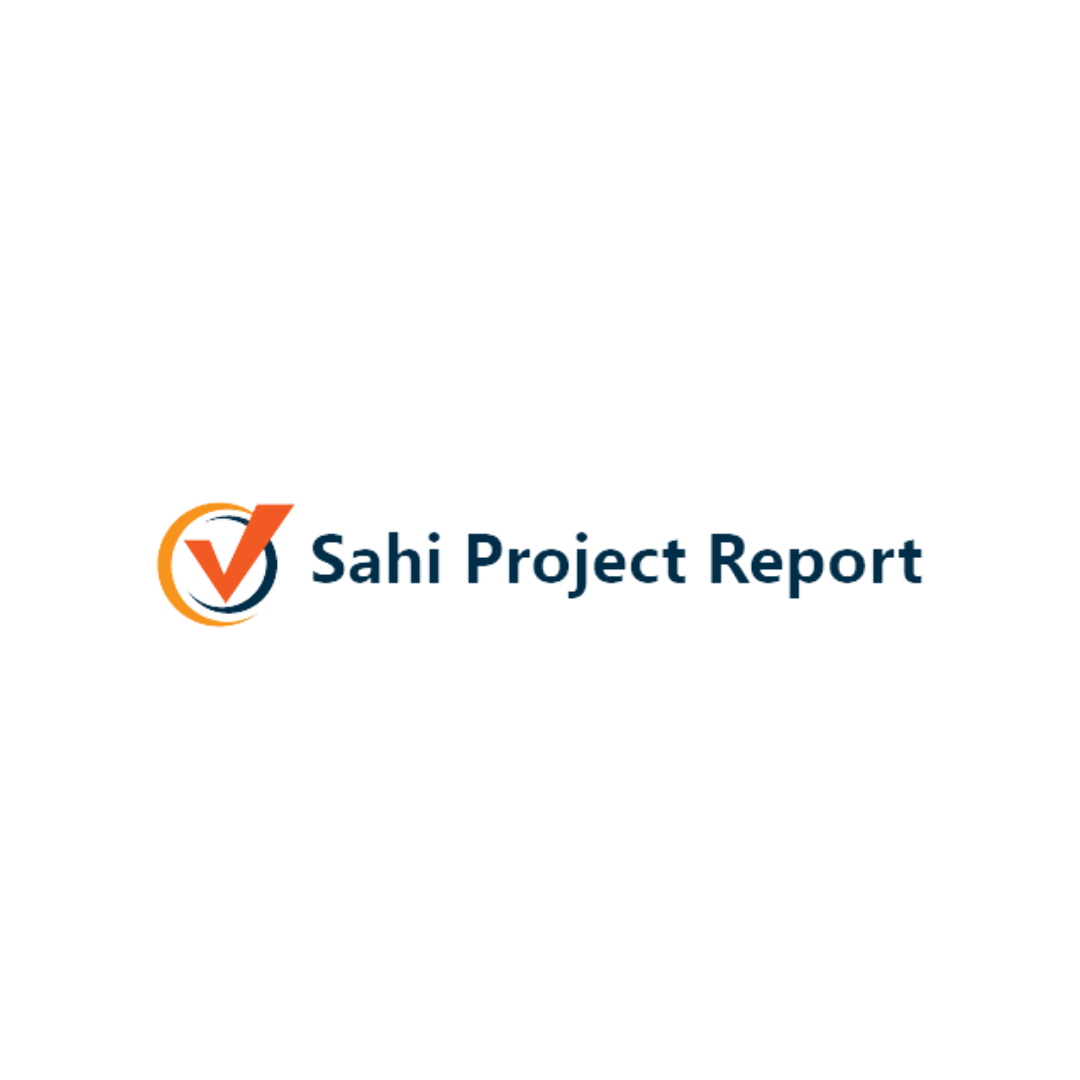Understanding Section 10(34) and Related Provisions of the Income Tax Act: Tax Exemptions on Dividends and Buyback of Shares
Tax planning is an essential part of financial management, and the Income Tax Act offers various exemptions that can help investors minimize their tax liabilities. Section 10(34) of the Income Tax Act provides specific exemptions for income arising from dividends, and Section 10(34A) deals with income from the buyback of shares. Additionally, Section 10(34B) offers exemptions for certain types of income for units in International Financial Services Centres (IFSCs). This blog will explore these sections in detail, explaining their practical implications and benefits.
What is Section 10(34)?
Section 10(34) of the Income Tax Act exempts any income by way of dividends referred to in Section 115-O from being included in the total income of the assessee. However, there are provisos to this clause that modify its application:
First Proviso:
This exemption does not apply to any income by way of dividends chargeable to tax under Section 115BBDA.
Second Proviso:
From April 1, 2020, the exemption under Section 10(34) does not apply to dividends received, except those on which tax under Section 115-O and Section 115BBDA has been paid.
Key Points of Section 10(34)
Exempt Income:
Dividends referred to in Section 115-O.
Exceptions:
Dividends chargeable under Section 115BBDA and dividends received on or after April 1, 2020, unless tax under Section 115-O and Section 115BBDA has been paid.

Section 10(34A): Buyback of Shares
Section 10(34A) exempts any income arising to a shareholder on account of the buyback of shares by the company, as referred to in Section 115QA.
Key Points of Section 10(34A)
Exempt Income:
Income from the buyback of shares by the company.
Reference:
Section 115QA, which deals with the tax on distributed income to shareholders by a company on buyback of shares.
Section 10(34B): Income from International Financial Services Centres (IFSCs)
Section 10(34B) exempts any income of a unit of an IFSC, primarily engaged in the business of leasing aircraft, by way of dividends from another company also being a unit of an IFSC engaged in the same business.
Key Points of Section 10(34B)
Exempt Income:
Dividends received by a unit of an IFSC engaged in aircraft leasing from another IFSC unit engaged in the same business.
Definition:
“International Financial Services Centre” is as defined in Section 2(q) of the Special Economic Zones Act, 2005.
Practical Implications
Tax Benefits for Shareholders:
Shareholders can benefit from exemptions on dividends and buybacks, reducing their tax liabilities.
Incentives for IFSCs:
: Units in IFSCs engaged in aircraft leasing can benefit from dividend exemptions, encouraging investment in this sector.
Example
Let’s consider an example to understand the practical application of these sections:
Dividends:
If an investor receives dividends from a company, those dividends are exempt from tax under Section 10(34) provided the tax under Section 115-O has been paid. However, if the dividends are chargeable under Section 115BBDA, they are not exempt.
Buyback of Shares:
If a shareholder receives income from a buyback of shares by a company, this income is exempt under Section 10(34A).
IFSC Dividends:
A unit of an IFSC engaged in aircraft leasing receives dividends from another IFSC unit in the same business. This income is exempt under Section 10(34B).
Relevant Case Laws
While specific case laws directly related to these sections may be limited, reviewing relevant judicial pronouncements on similar exemptions can provide a broader understanding of how courts interpret and apply such provisions. Investors and tax practitioners should stay updated with case laws to ensure compliance and optimal tax planning.
Additional Insights on Section 115-O, 115BBDA, and 115QA
Section 115-O:
This section deals with the tax on the distributed profits of domestic companies. The tax, known as the Dividend Distribution Tax (DDT), is paid by the company, and thus the dividend income is exempt in the hands of the shareholder under Section 10(34).
Section 115BBDA:
This section imposes an additional tax on dividends exceeding Rs. 10 lakhs received by individuals, Hindu Undivided Families (HUFs), and firms from domestic companies. Dividends subject to this tax are not exempt under Section 10(34).
Section 115QA:
This section specifies the tax on distributed income by a company on the buyback of its shares. The company is liable to pay this tax, and the resulting income is exempt in the hands of the shareholder under Section 10(34A).
Frequently Asked Questions (FAQs)
Q1: What is Section 10(34) of the Income Tax Act?
Section 10(34) provides an exemption for income from dividends referred to in Section 115-O, subject to certain conditions and exceptions.
Q2: What is Section 10(34A) of the Income Tax Act?
Section 10(34A) exempts any income arising to a shareholder from the buyback of shares by the company, as referred to in Section 115QA.
Q3: What is Section 10(34B) of the Income Tax Act?
Section 10(34B) exempts income of a unit of an IFSC engaged in aircraft leasing by way of dividends from another IFSC unit in the same business.
Q4: When does the exemption under Section 10(34) not apply?
The exemption does not apply to dividends chargeable under Section 115BBDA and dividends received on or after April 1, 2020, unless tax under Section 115-O and Section 115BBDA has been paid.
Q5: How does Section 10(34A) benefit shareholders?
Section 10(34A) provides tax relief to shareholders by exempting income from the buyback of shares, reducing their overall tax liability.
Q6: What is the significance of IFSCs in Section 10(34B)?
Section 10(34B) encourages investment in IFSCs by providing tax exemptions on dividends for units engaged in aircraft leasing, promoting the growth of this sector.
Q7: How should I report exempt income under these sections in my tax return?
While the income is exempt, it is still advisable to report it in your tax return for transparency and to ensure compliance with all tax regulations.
Q8: Are there any specific case laws related to these sections?
While specific case laws may be limited, reviewing judicial pronouncements on similar exemptions can provide valuable insights and ensure compliance.
Q9: How does Section 115BBDA affect high-income individuals?
Section 115BBDA imposes an additional tax on dividends exceeding Rs. 10 lakhs received by individuals, HUFs, and firms, which means high-income individuals may face additional tax liabilities on their dividend income.
Q10: What are the benefits for companies under Section 115QA?
Companies benefit from Section 115QA as the tax on buyback is paid by the company, and the resulting income is exempt for shareholders, making buybacks an attractive option for returning value to shareholders.
Conclusion
Understanding Sections 10(34), 10(34A), and 10(34B) of the Income Tax Act can help investors and businesses make informed decisions and benefit from available tax exemptions. By being aware of the specifics of these provisions, you can optimize your tax planning and reduce your tax liabilities. Stay updated with relevant case laws and judicial interpretations to ensure compliance and maximize your tax benefits.
For more information on tax exemptions and financial planning, visit Smart Tax Saver.




